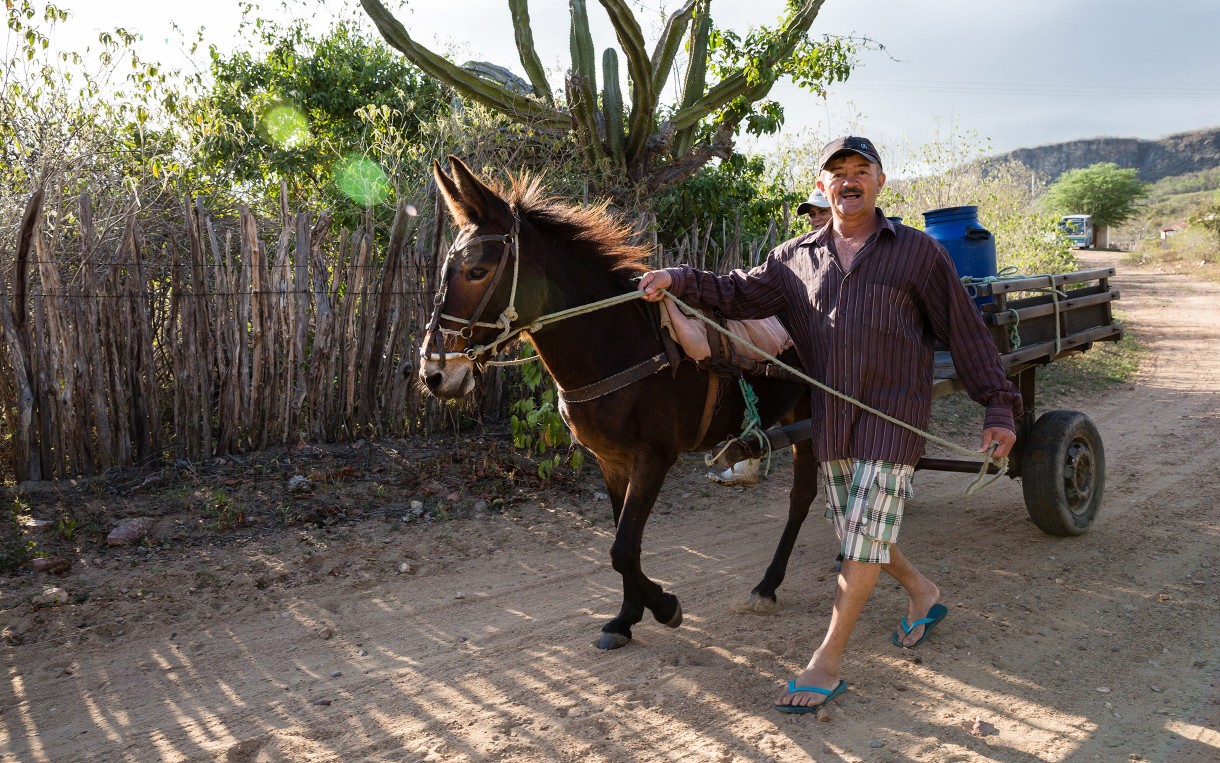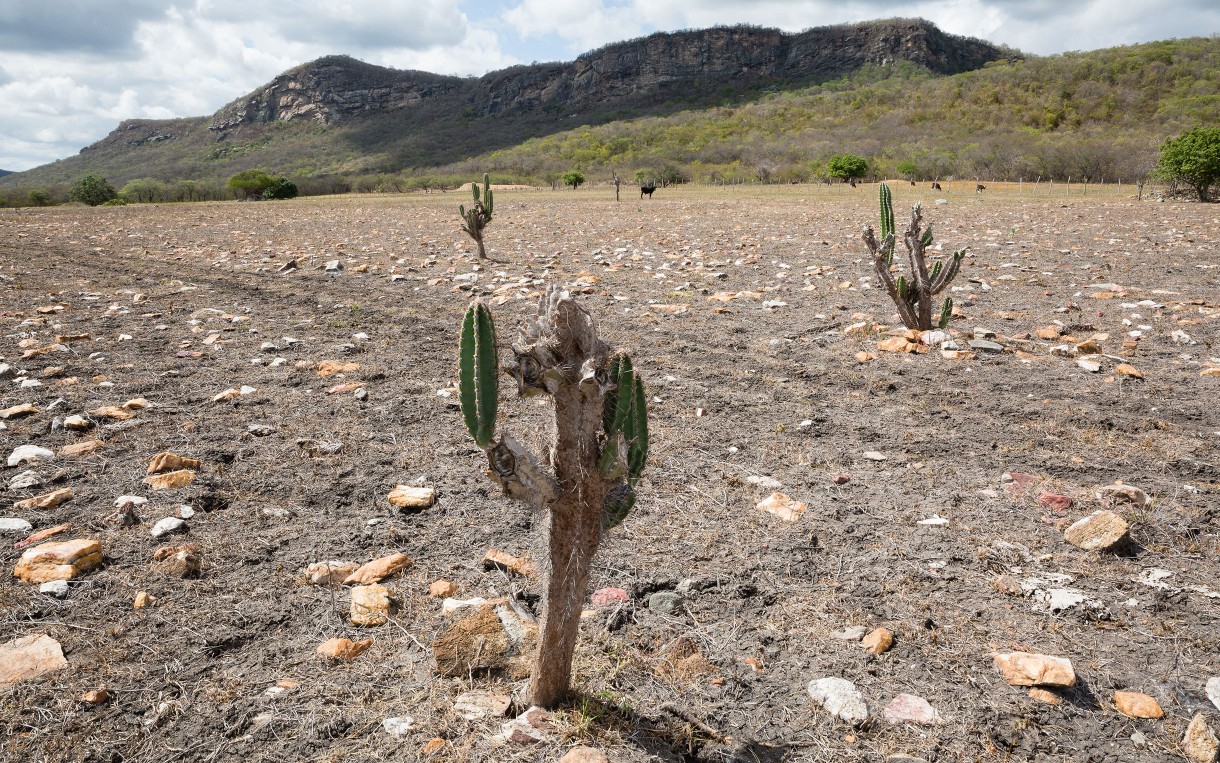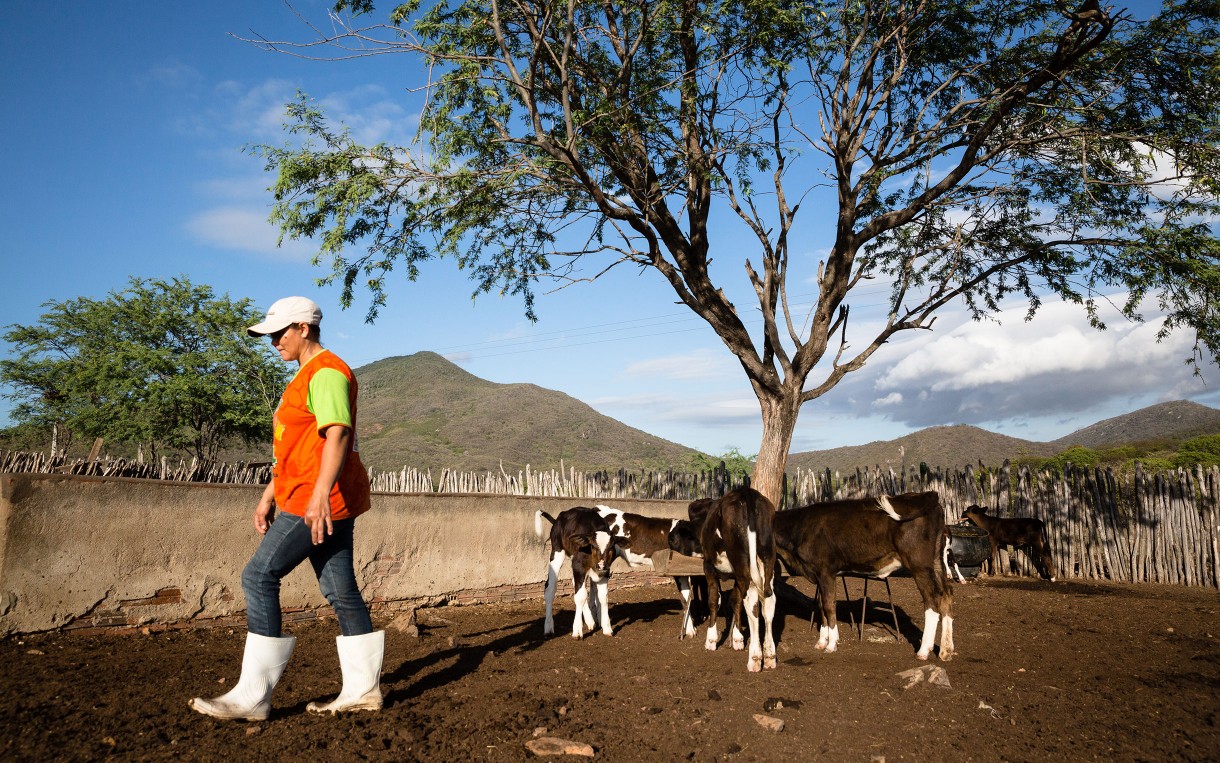Farmers facing drought need a real climate deal
 Maria José de Sousa Leima Roseira at work. Photo by: Tatiana Cardeal/Oxfam
Maria José de Sousa Leima Roseira at work. Photo by: Tatiana Cardeal/Oxfam
Dairy farmers making tough choices to survive in Brazil.
Sophia Lafontant is the Behind the Brands Public Campaign Lead.
The sky was a blurry mix of orange, pink and blue on the drive to Lagoa de Sao Miguel, a small village in northeast Brazil. It was just shy of 5 a.m. when we arrived on the dairy farm of Roseira and Maria José. Maria José was already milking her cows by hand when we approached. We quietly observed her call each cow by name to come over, including her favorite, Gordinha (“little fatty”).
Roseira and Maria José currently have 23 cows, 12 of which are lactating. They live on the farm with their 17-year-old daughter, Flavia, and Roseira’s mother. This husband-wife duo is a rarity in this part of Brazil, where dairy farming is usually reserved for men. “People say that I do a man’s job, but… I like to do it. I like hard work. I don’t know if that makes me a man, but I enjoy it!” she says. “I never thought I’d do this work.”
Maria José began dairy farming 10 years ago, after her husband Roseira developed an allergy on his hands and couldn’t milk the cows. They started selling their cows to make money when Maria José saw a news story about a woman who milked her own cows. “I said, ‘let’s keep one cow, and I can try it.’ My husband thought it might be too difficult. At first it was, but I worked hard and got better.”

Maria José and Roseira are facing dry times where they live in Ceará state. A worsening four-year drought is taking its toll on the region. There is less fodder and less pasture for the cows to graze on which means the cows produce less milk and the family makes less money. “Now we don’t have water,” Maria José says. “In 1915, they say, there was a very hard drought—they said it was because of a curse. Now they say it’s here again, and I believe it.”
Real people facing a changing climate
I was on the farm with Maria José and Roseira because Oxfam wanted to document how real people were adapting to unpredictable weather patterns (droughts, rising seas and extreme weather events). This is the untold story of climate change, with all the attention this year focused on whether big polluting countries will accept an ambitious enough climate deal, the stories of people coping and finding solutions is often lost.

How can we convince law makers that regular people are struggling when a lot of the news items focus on melting glaciers and dwindling animal habitats? I wanted to listen to what Maria José and Roseira had to say about their lives.
Selling milk is their only source of income
In years past and this year, the drought situation has forced Maria José and Roseira to lean on family to come up with alternatives.
In 2012, when they didn’t have any fodder to give to the cows, Roseira worked out a deal with his cousin to plant some grass near a pond on his property where they could graze the herd. Half of what they planted would go to the cousin, and half would go to them. With this solution, they were able to survive the worst of the drought. “Back then, we had options,” Roseira says. “But now the worst year is this one,” he tells us.
In May, just a month before we met, the couple gave 19 of their 42 cows to Maria José’s relative. The relative has access to a reservoir and could provide water for the cows in his care; something Maria José and Roseira can’t do right now. The plan is for him to keep the cows until January 15, 2016, at which time he’ll give half of them back. He gets to keep the other half as payment, which means they will lose one quarter of their income. It’s better than losing all of it.
This wasn’t a decision Maria José and her husband took lightly but, they were left with no other options. They are constantly thinking about short- and long-term solutions to help stretch their income or ease the financial burden.

We then changed the subject to that of their only child, Flavia and her future. She wants to be a nurse. She took the national standardized test and got a high score, the family is hoping she will get a scholarship to pay for school. “I would not want her to do what I do,” Maria José says. “It’s tough work. I wouldn’t like her to follow in my footsteps… I want her to have a future. What I do is no future, just surviving.”
Next month close to 200 world leaders will come together for the COP 21 meeting in Paris and they need to get this next climate deal right. What they decide there should be a significant step towards global action so that global warming stays as far below two degrees as possible, and the world’s poorest, who are hardest hit yet least responsible, get the support they need. Getting agreement on the mechanics won’t be easy, but our future and that of people like Maria José depend on it.
Stand with those hit hardest by climate change: Show our governments and big business that they’ve got to take urgent action to tackle climate change. Act Now